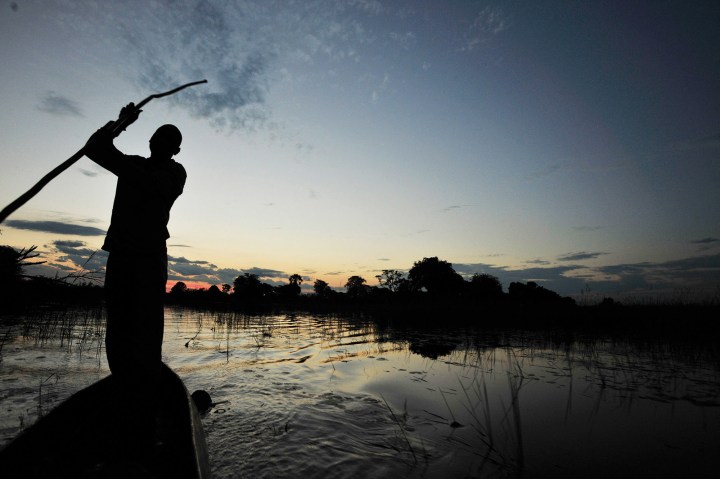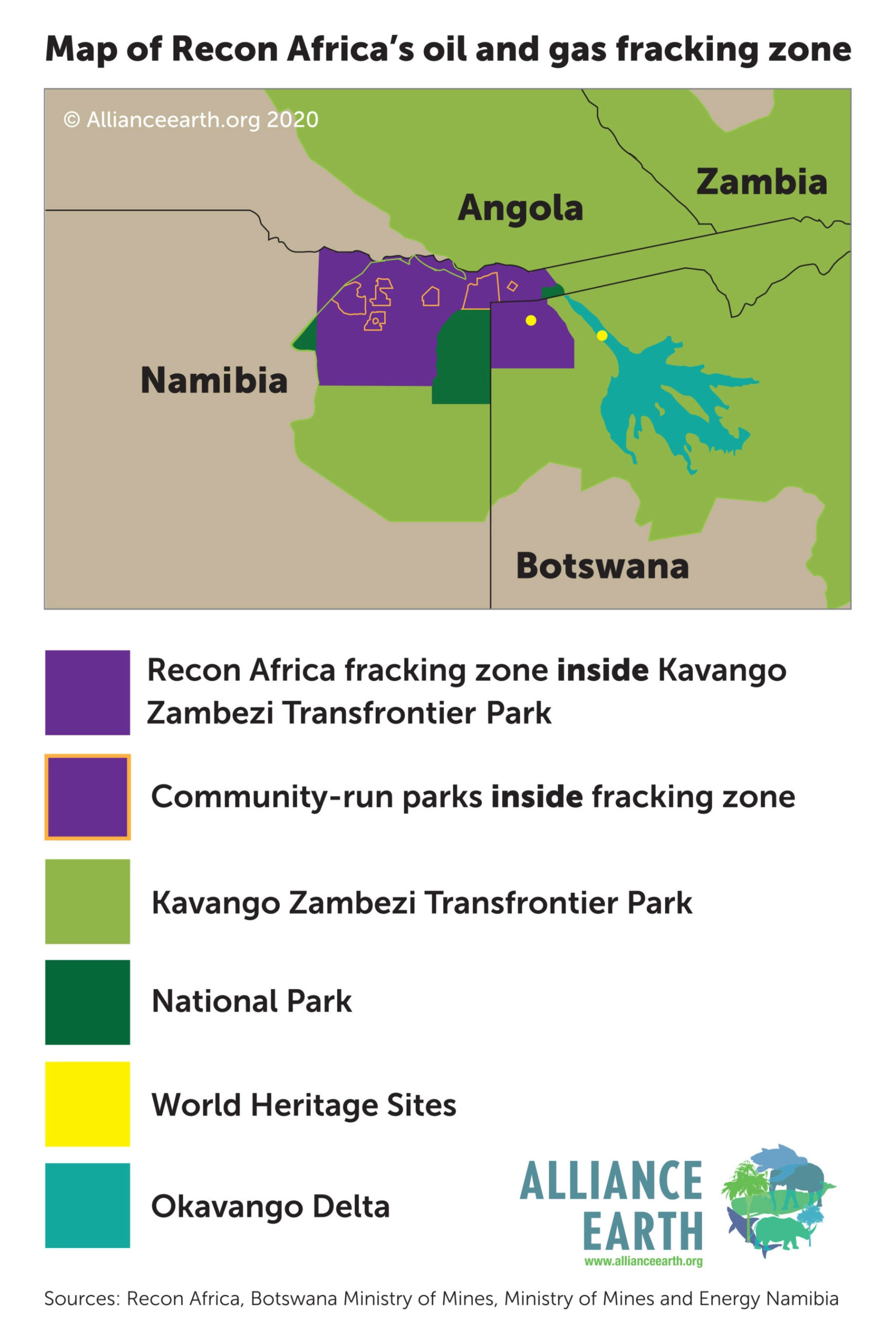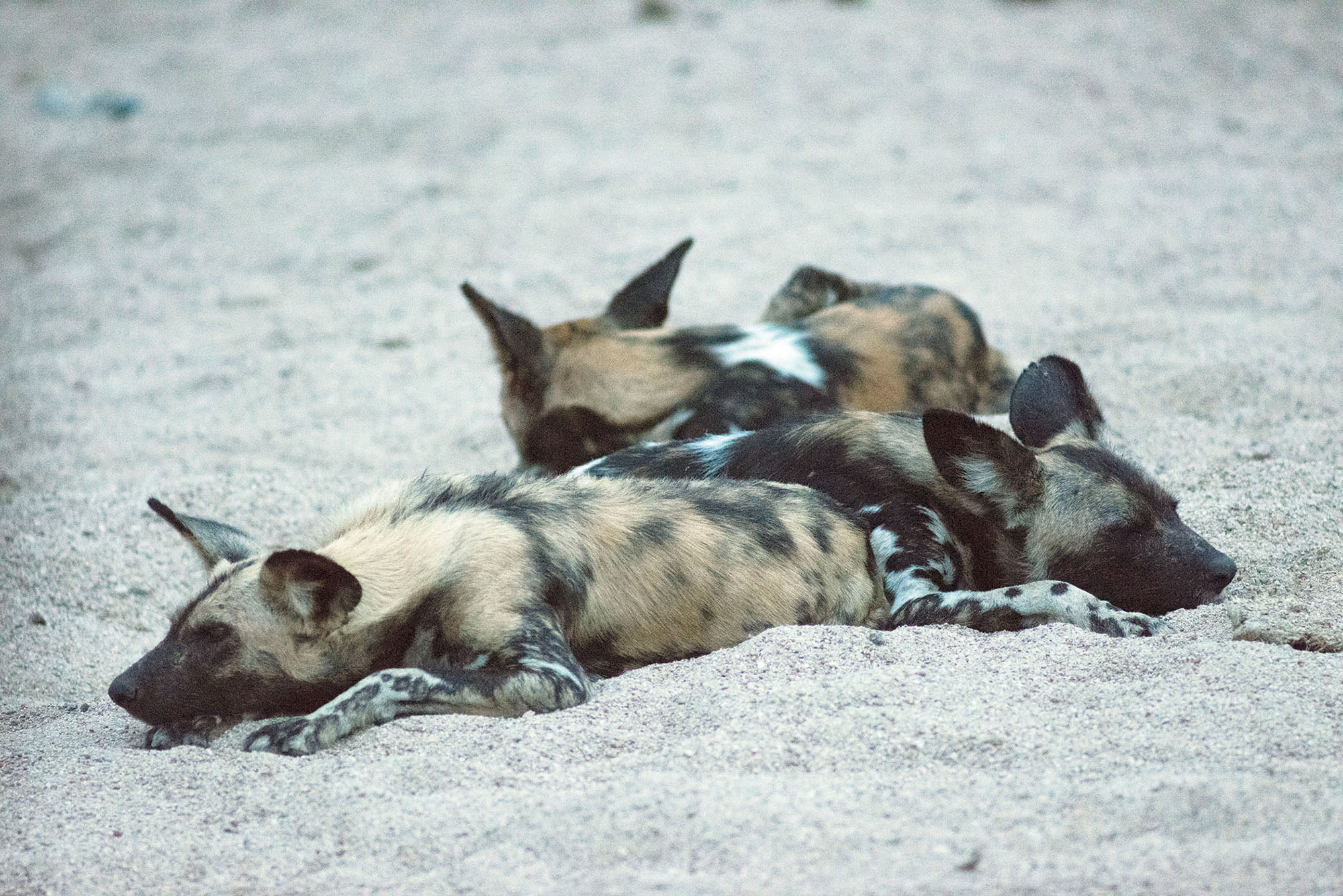OUR BURNING PLANET
Mining licence for Namibia’s sensitive Kavango region goes underground

The Namibian government has downplayed concerns about the possible effects of drilling by the US/Canadian oil and gas company, ReconAfrica, in the ecologically sensitive and agriculturally significant Kavango region of Namibia.
In a media release on 18 September 2020, the Namibian Ministry of Mines and Energy stated: “To date no onshore production licence for PL073 has been applied for/or granted and no licence for the development of unconventional resources (eg Shale Gas) has been applied for/granted in Namibia.”
This seems to be disputed by ReconAfrica on their website. According to them their exploration licence “ entitles ReconAfrica to obtain a 25-year production licence”.

The Namibian mining ministry stated that “the proposed activities will not in any way cause negative impacts to the Okavango Ecosystem” and that “all the necessary environmental impact permits for the project are in place”.
To date, only one-third of the Environmental Impact Assessment has been delivered to the Namibian and civil society members including Avena Jacklin, the Climate and Energy Justice campaign manager for the Southern African-based environmental justice group groundWork.
She says that “it is shocking that this EIA was authorised at all”.
According to Jacklin, the area that ReconAfrica says it will drill “is part of a critical water network supporting the ecosystems spanning Namibia, Angola and Botswana. Furthermore documentation on the IAPs (Interested and Affected Parties) and their consultation was missing from the EIA”.
Most importantly, in her view, “specialist studies on all the impacts of drilling, including water usage and pollution, were not assessed with studies that should have included Biodiversity, Heritage, Wetlands, Air Quality, Vibration, Noise, Traffic, Human Health risk, Waste, Social and Economic studies”.
She adds that “monitoring requirements and reporting to relevant authorities are not included. There was absolutely no consideration of life after drilling or in the event of abandonment liability/responsibility including monitoring any holes dug for leaks”.
Judy Bell is an environmental management consultant based in South Africa who has worked on numerous Environmental Impact Assessments. After looking through the section of the Environmental Impact Assessment (EIA) that the Ministry of Environment has provided she is in agreement with Jacklin that it was not done according to the letter of the law.
She says there is no expression of non-competing interest by the author, there are no alternatives to drilling outlined, and adds “who will monitor these deep wells for leaks after abandonment and for how long? Who is liable? This should be made very clear in the documentation”.
She goes on to say that “in California, US in May 2019 Chevron workers struggled to seal an aged broken well. It took days to plug, but a month later it leaked again, but much worse. How will a leaking well in the middle of nowhere in Namibia be fixed or even known about?”
She says the most onerous part of the EIA is that it allows the company to drill anywhere, stating that “the actual drilling locations are not fixed and can be shifted as may be required”.
Bell says this is ridiculous. “This means that any impact assessment is meaningless as the site is not known.”
The Botswana government has acknowledged that they have issued ReconAfrica with a prospecting licence for the far north-western part of Botswana surrounding Tsodilo Hills, but have not yet responded with an EIA or a public statement. This investigation is ongoing. DM
For more information visit https://allianceearth.org/fracking-the-okavango
Jeffrey Barbee is an award-winning writer and filmmaker whose 2015 film The High Cost Of Cheap Gas helped expose an illegal attempt to run fracking operations on gas discoveries in Botswana. His reporting appears in Daily Maverick, The Guardian, Thomson Reuters Foundation, PBS, National Public Radio, LinkTV and many other publications.























 Become an Insider
Become an Insider
Please no drilling or mining anywhere near that special region